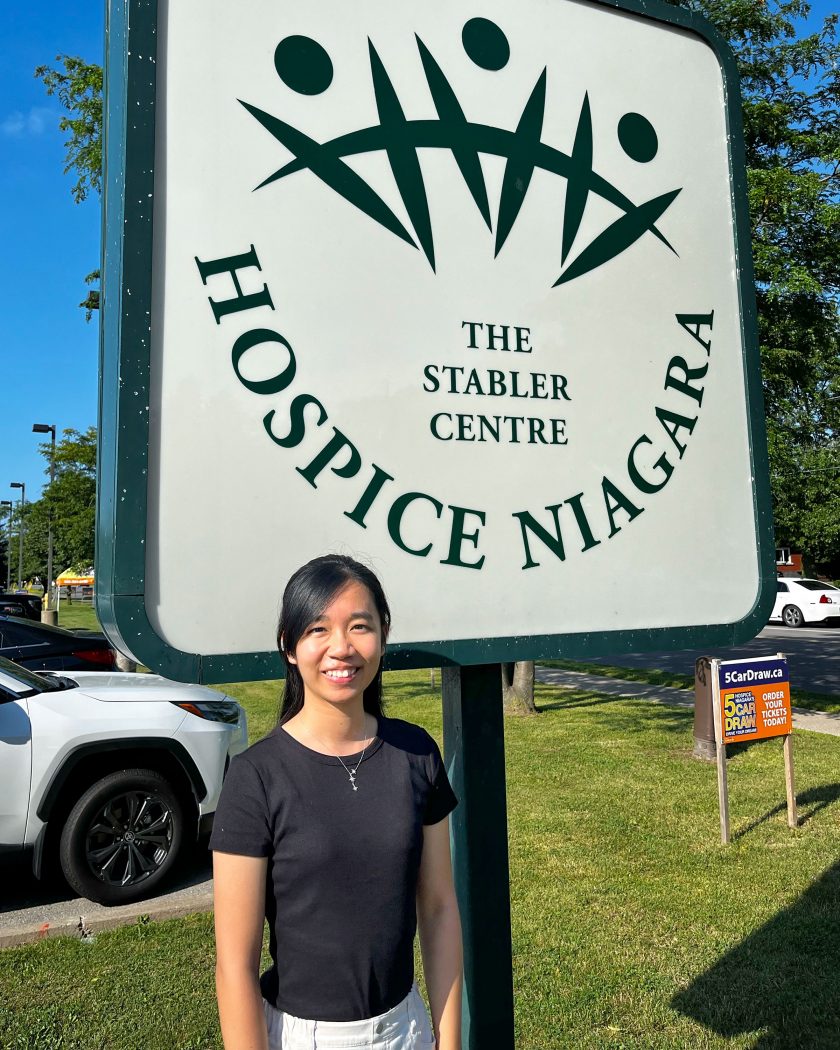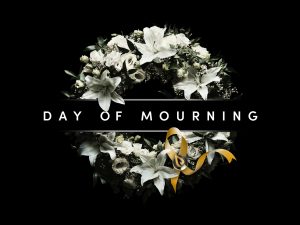 A Brock University graduate student has created an educational resource long-term care home employees can use to help support residents' grief journeys.
A Brock University graduate student has created an educational resource long-term care home employees can use to help support residents' grief journeys. Death and loss are subjects many shy away from, but supporting people through grief is a calling for Brock graduate student Chloe Tse — and the focus of a new resource she created for long-term care home (LTCH) practitioners.
As social worker in Hong Kong hospitals, Tse found herself interacting with people facing terminal illnesses and living with grief, many of them elderly.
“Standing so close to suffering, loss and death, I started to question the meaning of it all,” she said. “But I also saw the inner strength and resilience of people growing around their grief.”
Tse came to Canada to gain specialized education for working with older adults by enrolling in Brock’s Master of Applied Gerontology (MAG) program. She chose to pursue graduate studies outside of Hong Kong because of her culture’s negative association with loss.
“Death is a taboo there,” Tse said. “People seldom share their grief with others, even with family.”
She had heard Canadians were more open about grief and was interested in the practicum component of Brock’s MAG program, which would allow her to spend 300 hours in a community organization.
Through her placement with Hospice Niagara, Tse shadowed bereavement and grief support practitioners and participated in related programs, such as grief walks and legacy projects like sewing pillowcases using the clothing of the deceased loved one.
She also spent time with a palliative pain and symptom management consultant, who provided education and consultation to different service providers such as hospices and LTCHs.

Brock University Master of Applied Gerontology student Chloe Tse is passionate about grief support. Her practicum placement at Hospice Niagara involved shadowing bereavement and grief support practitioners.
Her experience sparked an interest in examining the grief resources available to the residents living in these homes.
Tse reviewed literature on best practices in grief supports in residential care settings and collected data from an online questionnaire she distributed to all 34 of Niagara’s LTCHs to better evaluate if these best practices were being followed. She also conducted follow-up interviews with some of the respondents.
Among other findings, Tse found gaps in LTCH staff’s knowledge and capacity to acknowledge residents’ grief. While most LTCHs openly communicate about the death of a resident, many LTCHs didn’t recognize the possible grief associated with relocation.
Residents often feel a loss of independence and autonomy and their connections with friends weaken, said Tse.
“Without the appropriate supports to help residents navigate through these transitions and experiences of loss, their mental health can be negatively affected,” she said.
Staff shortages and inadequate training of LTCH staff was also identified as a gap, with more than two thirds of staff members citing they had no grief-related training.
Not every home has a social worker or a psychotherapist, said Tse, so the staff who provide grief support end up being nurses, personal supports workers, recreational therapist or spiritual practitioners who are not trained to provide psychosocial care.
“Unfortunately, psychosocial care is often sacrificed first because practitioners must focus on physical care,” she said. “But mental health challenges can lead to physical problems. We need to address and support residents’ psychosocial needs to maintain or strengthen their quality of life.”
In response to her assessment, Tse created a 40-page educational resource LTCH employees can use to help support residents’ grief journeys, whether the loss is the passing of a loved one or non-death-related. The booklet aims to translate knowledge into practical skills so frontline staff are empowered to enhance their capabilities and integrate effective grief support into their daily interactions.
“The educational resource centres around the symbol of plants, representing the notion that people can grow amidst grief without it being left behind,” said Tse. “As health-care practitioners, we play a pivotal role in fostering an environment favourable to this growth.”
Tse is hopeful the booklet she created will raise awareness about the needs of individuals living with grief and will have a positive impact on the Niagara community.








